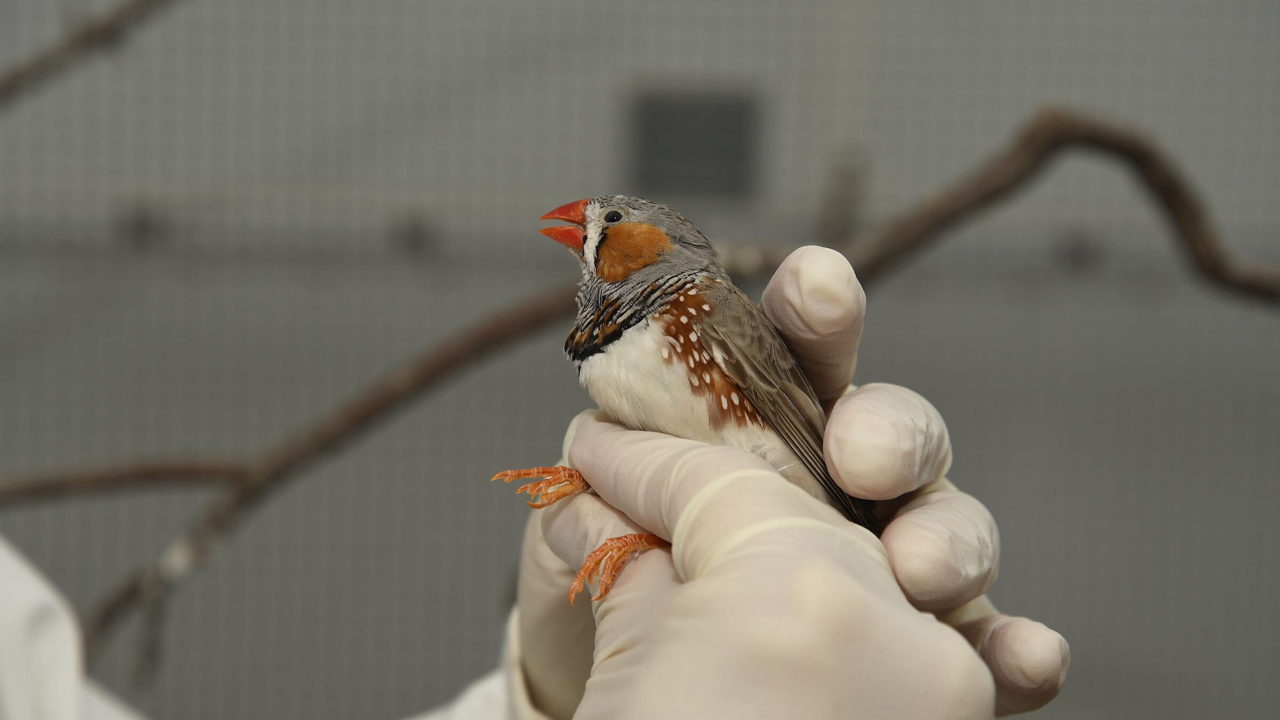Interdisciplinary team to explore stress response with major NSF award
Published: Jul 8, 2020 8:53 AM
By Cassie Montgomery
A team of Auburn University faculty from departments across three disciplines will use a nearly $2 million National Science Foundation award to look at how environmental stressors initiate and prime stress responses, and when those responses influence an animal’s ability to pass genes to next generations. The goal of this research is to uncover answers to fundamental questions about stress resistance and resilience, and create models to predict the persistence of populations in the face of stressors experienced in their environments.
The project is led by Haruka Wada, assistant professor of biological sciences, with co-principal investigators Vinamra Agrawal, assistant professor of aerospace engineering; Todd Steury, associate professor of forestry and wildlife sciences; and Tonia Schwartz, assistant professor of biological sciences. The four-year project is titled “Integrating engineering theory and biological measures to model stress resilience, damage and fitness-related consequences.”
Wada has long explored the physiological and cellular mechanism of the “what doesn’t kill you makes you stronger” phenomena in her lab. “Exposure to a mild-level environmental stressor can make animals more resistant to future stressors,” she explained. “This project is truly a collaborative effort, combining expertise from material engineering, physiology, genomics and statistics.”
Environmental or external stressors for animals can include things such as food shortages, heat, pollutants or being captured by humans. Animals elicit stress responses and these responses change with variables such as age, sex and prior experience with the particular stressor.
Agrawal, whose research interests lie in understanding how materials undergo damage when subjected to external loads, brings expertise in damage mechanics to the project.
“Damage mechanics has been extended to study smart materials capable of ‘healing’ or restoring this ability,” he said. “In this work, we are bringing these concepts to biological sciences. The goal is to use the ideas of damage-healing mechanics to model and predict ‘damage’ and ‘healing’ within a biological organism when subject to external stressors.”
Zebra finches make the ideal experimental subjects due to their willingness to breed in captivity, relatively short maturation period of about three months and their well-characterized genome. The researchers will be able to gather data on multiple generations in a relatively short period of time. Schwartz, whose research focuses on functional genomics, will lead an effort to use molecular techniques to identify changes in cellular damage repair and damage removal processes that may be passed down to the next generation.
“Biological organisms are extremely complex systems, with complex processes happening at cellular, tissue and organ levels. External stressors like heat can affect fitness and survivability of an organism,” Agrawal said. “Damage-healing mechanics provides a way to study the changes of chemical markers, such as hormone levels, with heat and time, and how they affect the survivability of the organism.”
Using these data, the team will build two models. Steury, with expertise in quantitative ecology and statistics, will build a model to describe relationships among the various physiological and cellular markers collected. A second predictive model will allow other researchers to predict reproductive potential based on the amount of cellular damage accumulated in the body.
“Using this predictive model, researchers will be able to predict how populations of animals may persist through forecasted change in the climate and environment,” Wada said. “Existing models focus on changes in hormones that only vertebrates possess. The proposed model lifts this barrier by focusing on the types of damage shared across taxa. My hope is that this model will help characterize relationships among stressors, damage and reproduction in a wide range of species.”
Media Contact: , cmontgomery@auburn.edu, 334.844.3668

Researchers will study the stress responses of zebra finches with a recent award from the National Science Foundation.

